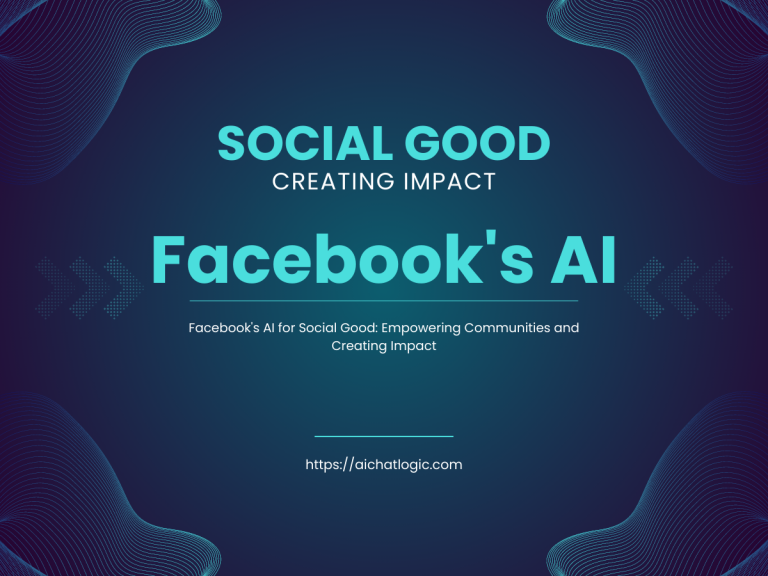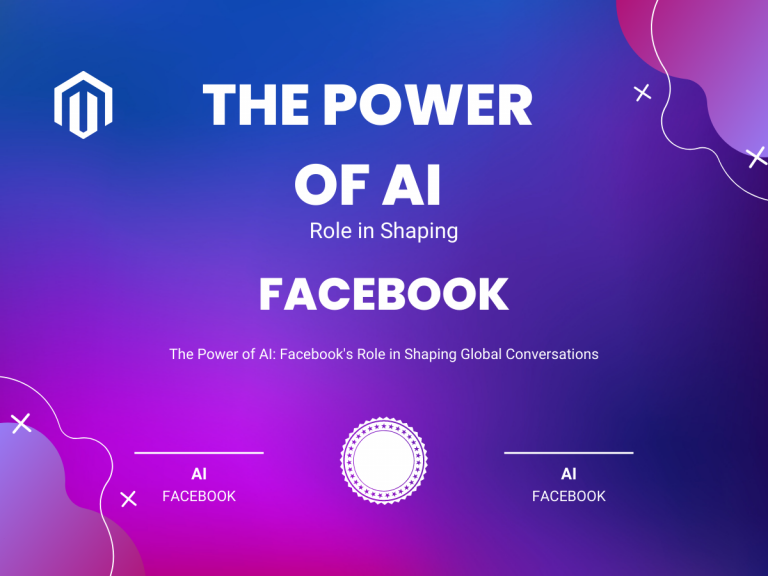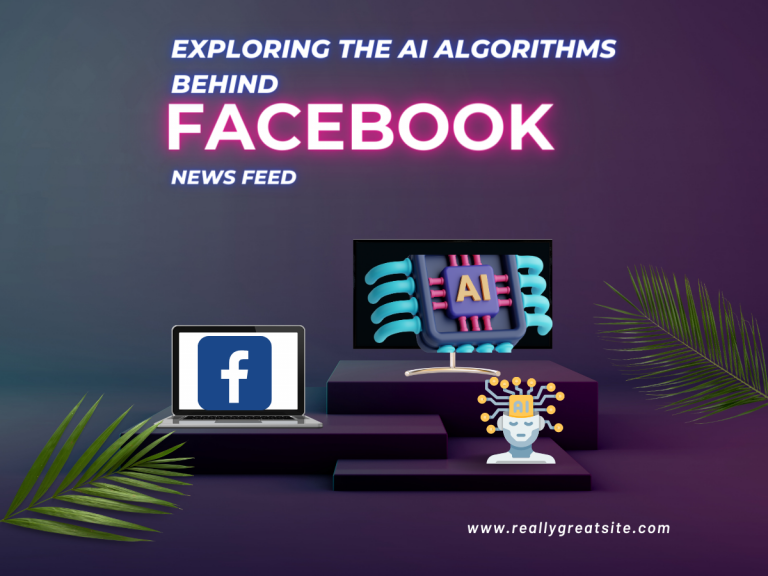1. Introduction:
Facebook, one of the world’s leading social media platforms, has been at the forefront of utilizing Artificial Intelligence (AI) to transform the user experience for its billions of users. Through various AI initiatives, Facebook aims to enhance personalization, streamline communication, improve content moderation, ensure accessibility, strengthen privacy and security, optimize ad targeting, and harness data analysis for insightful user experiences. In this article, we will explore how Facebook’s AI initiatives are revolutionizing the way users interact with the platform and the broader implications for the digital landscape.
2. Enhancing User Experience with Personalized Recommendations
One of the key areas where Facebook employs AI is in delivering personalized recommendations to its users. Facebook’s advanced algorithms analyze user data to curate personalized content, fostering engagement and satisfaction with tailored recommendations.
3. Streamlining Communication with Natural Language Processing
Natural Language Processing (NLP) is another area where Facebook’s AI initiatives have made significant strides. By leveraging NLP algorithms, Facebook enhances the user experience by making communication more seamless and intuitive. Facebook’s NLP features, including auto-complete and smart replies, enhance user engagement by facilitating seamless communication and efficient chatbot interactions.
4. Improving Content Moderation and Safety Measures
With billions of users generating vast amounts of content, ensuring a safe and inclusive online environment is paramount for Facebook. To address this challenge, Facebook utilizes AI to improve content moderation and implement safety measures. AI-powered algorithms on Facebook identify and flag harmful content, ensuring community standards and protecting users from abusive experiences. By leveraging AI’s scalability and automation, Facebook can swiftly address content-related issues, thus enhancing user safety and trust.
5. AI-powered Accessibility Features for Inclusive User Experience
Facebook strives to make its platform accessible to users with diverse abilities and needs. Through AI-powered accessibility features, such as automatic alternative text generation, closed captioning, and voice recognition, Facebook ensures that people with visual or hearing impairments can engage with content more effectively. By leveraging AI, Facebook is taking significant steps towards creating a more inclusive online environment, enabling users of all abilities to participate fully and benefit from the platform’s offerings.
6. Enhancing Privacy and Security with AI Algorithms
Facebook utilizes AI algorithms to enhance platform security and safeguard user information in response to growing privacy and data security concerns. AI helps in detecting and preventing unauthorized access, identifying fraudulent activities, and flagging potential security risks. By constantly analyzing patterns and user behavior, Facebook’s AI algorithms can identify and thwart potential threats, providing users with a more secure online experience.
7. Facebook’s AI Initiatives in Ad Targeting and User Engagement
AI plays a pivotal role in optimizing ad targeting and user engagement on Facebook. By analyzing user data, AI algorithms can deliver targeted advertisements based on users’ demographics, interests, and online behavior. This ensures that users are presented with relevant and engaging ads, enhancing their overall experience and increasing the effectiveness of advertising campaigns for businesses. Facebook’s AI initiatives enable advertisers to reach their intended audiences more effectively, driving better results and return on investment.
8. Harnessing AI for Data Analysis and Insights
Facebook’s vast user base generates enormous amounts of data, and AI is instrumental in extracting valuable insights from this data. Facebook’s AI-powered data analysis enables the platform to understand user behavior, predict preferences, and enhance the user experience through data-driven decision-making.
9. The Future of Facebook’s AI Initiatives and User Experience Transformation
Looking ahead, Facebook’s commitment to AI-driven innovation is set to transform the user experience even further. As AI technologies continue to advance, we can expect Facebook to explore new frontiers such as virtual reality (VR), augmented reality (AR), and natural language understanding. These advancements have the potential to revolutionize how users interact with the platform, offering immersive experiences, more intuitive interfaces, and enhanced personalization. Facebook’s relentless pursuit of AI excellence ensures that users can anticipate exciting advancements that will shape the future of social media.
10. Frequently Asked Questions (FAQs)
10.1. How does Facebook use AI to enhance user experience?
Facebook utilizes AI for personalized recommendations, streamlined communication, improved content moderation, accessibility, privacy, ad targeting, and data analysis.
10.2. Can AI algorithms improve content moderation on Facebook?
AI algorithms enhance content moderation on Facebook, identifying and flagging harmful content to enhance user safety and community standards.
10.3. What accessibility features does Facebook offer with AI?
Facebook offers various accessibility features with AI, such as automatic alternative text generation, closed captioning, and voice recognition, ensuring a more inclusive user experience for individuals with visual or hearing impairments.
10.4. How does AI help in ensuring privacy and security on Facebook?
AI algorithms aid in ensuring privacy and security on Facebook by detecting and preventing unauthorized access, identifying fraudulent activities, and flagging potential security risks, thus providing users with a more secure online experience.
10.5. What are some examples of AI-driven data analysis by Facebook?
Facebook utilizes AI-driven data analysis to understand user behavior, preferences, and trends, enabling the platform to optimize its features and offerings accordingly. Examples include identifying patterns, predicting user preferences, and making data-driven decisions to enhance the overall user experience.
11. Conclusion
Facebook’s AI initiatives have played a pivotal role in transforming the user experience on the platform. Through personalized recommendations, streamlined communication, improved content moderation, accessibility features, privacy and security measures, optimized ad targeting, and data analysis for insights, Facebook continues to enhance user satisfaction and engagement. As AI technology evolves, we can expect Facebook to push the boundaries further, revolutionizing social media experiences and shaping the future of digital interactions.













+ There are no comments
Add yours